Mental Health Awareness Month began in the United States in 1949. It was started by the Mental Health America (MHA) organization with the purpose of raising awareness about mental health conditions and treatments.
This year’s theme “You are Not Alone”, draws attention to the millions of people in the U.S. who are affected by mental illness each year and underscores the importance of advocating for better health care and addressing the negative stigma often attached to individuals with mental health conditions.
Mental Health Facts & Figures in the United States
Annual Prevalence Among Adults and Youth
-
-
- 1 in 5 adults experience mental illness each year
- 1 in 20 adults experience serious mental illness each year
- 1 in 6 youth, aged 6-17, experience a mental health disorder each year
- 50% of all lifetime mental illness begins by age 14, and 75% by age 24
- Suicide is the second leading cause of death among people aged 10-34
-
Annual Prevalence by Demographic Group
-
-
- Non-Hispanic Asian: 14.4%
- Non-Hispanic white: 22.2%
- Non-Hispanic black or African-American: 17.3%
- Non-Hispanic American Indian or Alaska Native: 18.7%
- Non-Hispanic mixed/multiracial: 31.7%
- Non-Hispanic Native Hawaiian or Other Pacific Islander: 16.6%
- Hispanic or Latino: 18.0%
- Lesbian, Gay or Bisexual: 44.1%
-
Annual Prevalence Among Adults by Condition
-
-
- Anxiety Disorders: 19.1% (estimated 48 million people)
- Major Depressive Episode: 7.8% (19.4 million people)
- Posttraumatic Stress Disorder: 3.6% (estimated 9 million people)
- Bipolar Disorder: 2.8% (estimated 7 million people)
- Borderline Personality Disorder: 1.4% (estimated 3.5 million people)
- Obsessive Compulsive Disorder: 1.2% (estimated 3 million people)
- Schizophrenia: <1% (estimated 1.5 million people)
-
Source: NAMI: Mental Health by the Numbers
Below, you will find a range of mental health services that are free and confidential. Many are available in Spanish as well as English and other languages.
Crisis Counseling & Referral Services
Available in English, Spanish & Other Languages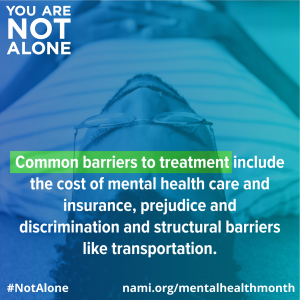
2-1-1 Bay Area, a program of United Way, is a confidential, comprehensive information and referral service for San Francisco, San Mateo, Napa, Marin, Santa Clara, and Solano counties connecting callers and texters with local community services, such as food, shelter, counseling, employment assistance, quality child care, senior services, and more. Dial 2-1-1 or 800-273-6222 or text your zip code to 898211, 24 hours a day, 7 days a week. 2-1-1 is available in 150 languages through phone interpretation services. Texting is available in English and Spanish.
The Disaster Distress Helpline is a national hotline that provides crisis counseling and support 24/7, 365-day-a-year, to people who are experiencing emotional distress related to any natural or human-caused disaster including COVID-19.
Call 1-800-985-5990 to connect with a trained crisis counselor. Spanish-speakers can call the hotline and press “2” for 24/7 bilingual support. Callers to the hotline can also connect with counselors in over 100 other languages via 3rd-party interpretation services. Or, text TalkWithUs to 66746 for English or Hablanos for Spanish to 66746.
National Domestic Violence Hotline
Advocates are available 24/7 at 1-800-799-SAFE (7233) in more than 200 languages. All calls are free and confidential. If you’re unable to speak safely, you can log onto thehotline.org or text LOVEIS to 22522. For TTY call: 1–800–787-3224
National Sexual Assault Hotline
800.656.HOPE (4673) is free, confidential and available 24/7 in English and Spanish. Call if you or someone you care about has experienced sexual assault or harassment and needs support, assistance, and advice. Chat services are also available. RAINN is the nation’s largest anti-sexual violence organization.
National Suicide Prevention Lifeline
The National Suicide Prevention Lifeline provides free and confidential emotional support to people in suicidal crisis or emotional distress 24 hours a day, 7 days a week, across the United States. The Lifeline is comprised of a national network of over 150 local crisis centers, combining custom local care and resources with national standards and best practices.
Call: 800-273-TALK (8255)
For Spanish, visit the website Nacional de Prevención del Suicidio or call 1-888-628-9454.
Services for people who are deaf and hard of hearing are available on the website and through:
Video relay Service or Voice/Caption Phone: 800-273-8255
TTY: 800-799-4889
By Text Only
Text HOME to 741741 and you’ll be connected to a trained Crisis Counselor. The Crisis Text Line provides free, text-based support 24/7 and works in partnership with close to 200 city- and state-level agencies, as well as universities and nonprofit services that offer assistance for a range of issues, including eating disorders, addiction, suicide prevention and child abuse.
For LGBTQ Youth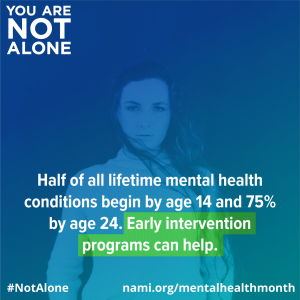
The Trevor Project
Call 1–866–488–7386 or text START to 678678 to reach this national 24-hour, toll free confidential suicide hotline for LGBTQ youth. The Trevor Project is a national organization providing crisis intervention and suicide prevention services to lesbian, gay, bisexual, transgender, queer & questioning (LGBTQ) young people under 25.
For Caregivers
Caregiver Action Network is the nation’s leading family caregiver organization working to improve the quality of life for the more than 90 million Americans who care for loved ones with chronic conditions, disabilities, disease, or the frailties of old age. Call the Care Support Team at 855–227–3640, 8:00 AM — 7:00 PM ET to speak to a care-giving expert for information and support.
For Conversation & Connection
Well Connected, 877-797-7299, and Well Connected Español, 877-400-5867 is a telephone and online community made up of participants, staff, and facilitators who care about each other and who value feeling connected. Call to share laughs, intellectual stimulation, inspiration, and conversation through groups you can join from home, by phone or online. Well Connected is a Covia Community Services program.
Institute on Aging – The Friendship Line
The Friendship Line, 415-750 – 4111, is both a crisis intervention center and a “warm” line for routine, even daily, phone calls that provide emotional support, medication reminders and well-being check-ins. A program of Institute on Aging's Center for Elderly Suicide Prevention and Grief-Related Services, the Friendship Line is nationally known and accredited by the American Association of Suicidology.
Podcasts
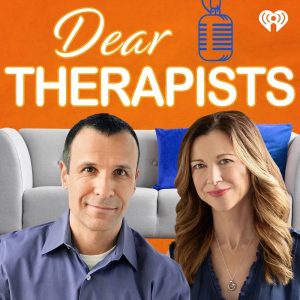
Each week therapists, advice columnists, and authors Lori Gottlieb, LMFT, and Guy Winch, Ph.D., invite you to listen in on personal, transformative sessions with everyday people and then hear what happens when people report back after the session ended.
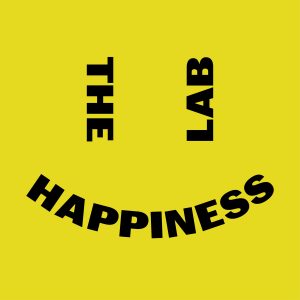
Yale professor Dr. Laurie Santos shares the latest scientific research on happiness plus some surprising stories that will alter the way you think about happiness. Based on the psychology course, The Science of Well Being, she teaches at Yale -- the most popular class in the university’s 300-year history.
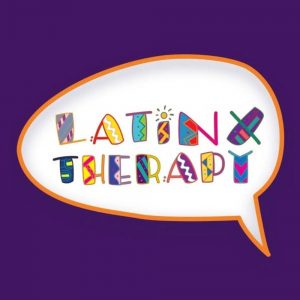
Adriana Alejandre, LMFT, is the founder of Latinx Therapy, a network of Latinx therapists. She discusses mental health topics related to Latinx individuals and answers questions from listeners. Each episode is available in both Spanish and English.
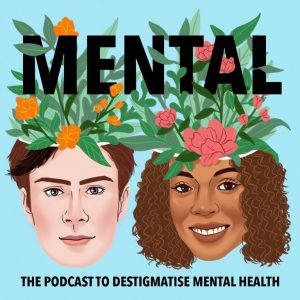
Mental - The Podcast to Destigmatise Mental Health
A U.K.-based, award-winning podcast. Hear honest and compassionate dialogue about mental health issues with model and writer Bobby Temps (who “lives and thrives by managing his own mental health”), as well as Danielle Hogan, a personal coach and Youth Mental Health First Aid instructor.
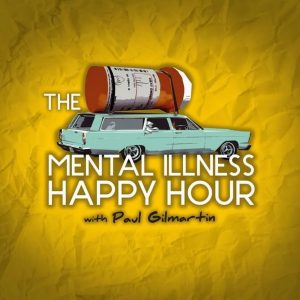
Comedian Paul Gilmartin is a recovering alcoholic diagnosed with clinical depression. Each week he shares stories of people living with depression, addiction and obsessive-compulsive disorder in this popular, humorous podcast.
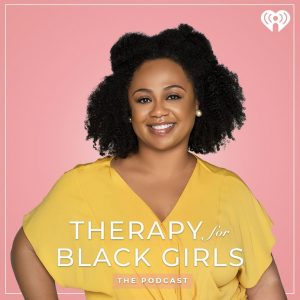
Clinical psychologist Joy Harden Bradford, Ph.D. hosts this podcast where BIPOC women can explore their mental health and personal development.

Therapist Esther Perel, LMFT, counsels real couples through issues like the impact mental illness has on relationships, infidelity, polyamory, parenting, divorce, and more.
Websites
Mental Health America has an in-depth list of resources and video lectures for a variety of conditions. Specific information can be found for parents, older adults, the LGBTQ+ community, first responders, caregivers, and mental health providers. Many helpful screening tests can be found on their website for depression, additiction, anxiety, eating disorders, postpartum depression, and more.
NAMI—National Alliance on Mental Illness


Add a comment to: May is Mental Health Awareness Month